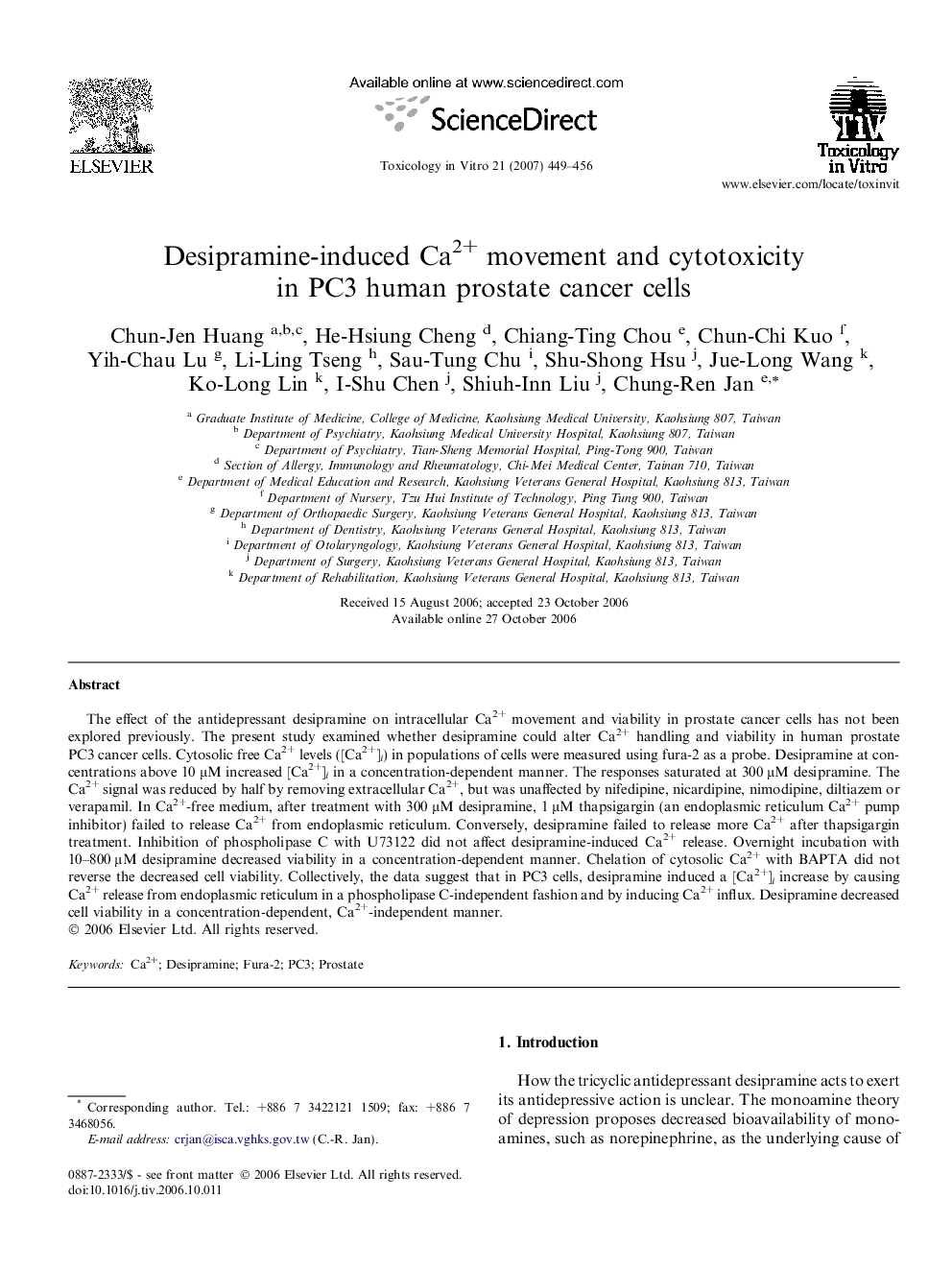| Article ID | Journal | Published Year | Pages | File Type |
|---|---|---|---|---|
| 2603852 | Toxicology in Vitro | 2007 | 8 Pages |
The effect of the antidepressant desipramine on intracellular Ca2+ movement and viability in prostate cancer cells has not been explored previously. The present study examined whether desipramine could alter Ca2+ handling and viability in human prostate PC3 cancer cells. Cytosolic free Ca2+ levels ([Ca2+]i) in populations of cells were measured using fura-2 as a probe. Desipramine at concentrations above 10 μM increased [Ca2+]i in a concentration-dependent manner. The responses saturated at 300 μM desipramine. The Ca2+ signal was reduced by half by removing extracellular Ca2+, but was unaffected by nifedipine, nicardipine, nimodipine, diltiazem or verapamil. In Ca2+-free medium, after treatment with 300 μM desipramine, 1 μM thapsigargin (an endoplasmic reticulum Ca2+ pump inhibitor) failed to release Ca2+ from endoplasmic reticulum. Conversely, desipramine failed to release more Ca2+ after thapsigargin treatment. Inhibition of phospholipase C with U73122 did not affect desipramine-induced Ca2+ release. Overnight incubation with 10–800 μM desipramine decreased viability in a concentration-dependent manner. Chelation of cytosolic Ca2+ with BAPTA did not reverse the decreased cell viability. Collectively, the data suggest that in PC3 cells, desipramine induced a [Ca2+]i increase by causing Ca2+ release from endoplasmic reticulum in a phospholipase C-independent fashion and by inducing Ca2+ influx. Desipramine decreased cell viability in a concentration-dependent, Ca2+-independent manner.
